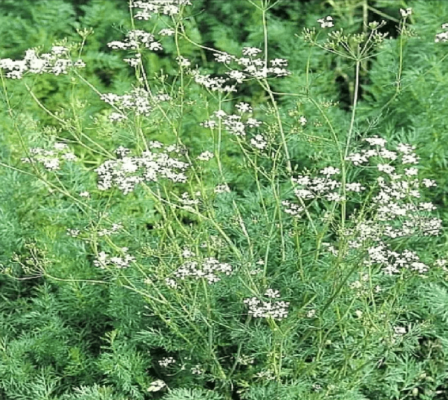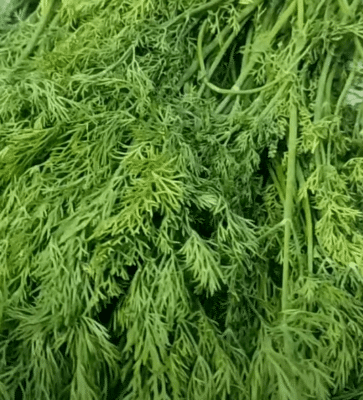Ajwain Plant Leaves - Unlocking the Nutrient-rich Goodness and Their Health Benefits
Omam in Tamil and in Hindi ajowan/ caraway
Table of Contents
Definition & Origin
Definition:
Ajwain, scientifically known as Trachyspermum ammi, is an aromatic herb belonging to the Apiaceae family. It is commonly referred to as carom seeds or Bishop’s weed. The plant has feathery leaves, and its seeds, which resemble cumin seeds, are widely used in Indian and Middle Eastern cuisines for their distinctive flavor and medicinal properties. The leaves of the Ajwain plant are also used in culinary applications, albeit less commonly than the seeds.
Ajwain is an aromatic herb commonly used in Indian cuisine for its distinctive flavor. The leaves of the Ajwain plant are pinnately compound, with small, feathery leaflets. While the seeds are more commonly used in cooking and for their medicinal properties, the leaves can also be used in certain recipes to add a unique flavor.
The Ajwain plant is known for its digestive and medicinal properties and is often used in traditional medicine in various cultures.
Origin:
Ajwain is found in Bharat (India) as well as in the Mediterranean. It has been cultivated and used in these regions for centuries, both for its culinary and medicinal purposes. The plant has a long history of traditional use in Ayurvedic medicine in India, where it is valued for its digestive and carminative properties. Over time, the use of Ajwain has spread to various parts of the world, and it is now recognized and utilized in diverse cuisines for its unique flavor and potential health benefits.


Nutrients
Ajwain Leaves Nutrient Profile:
Ajwain leaves are recognized for their health-promoting properties and are a rich source of essential nutrients. Packed with vital elements such as copper, calcium, phosphorus, fiber, carbohydrates, energy, magnesium, and iron, these leaves offer a range of benefits.
Copper: Essential for various metabolic processes in the body.
Calcium: Crucial for bone health and proper functioning of nerves and muscles.
Phosphorus: Important for bone health, energy metabolism, and cell repair.
Fiber: Supports digestive health and helps in preventing constipation.
Carbohydrates: Provide a quick source of energy.
Energy: Contributes to overall vitality and well-being.
Magnesium: Plays a role in muscle and nerve function, as well as energy production.
Iron: It helps to flow oxygen in your blood and for the formation of hemoglobin.
The combination of these nutrients in Ajwain leaves may aid in addressing various health concerns, including weight loss, blood pressure regulation, indigestion, hair loss, acne, and constipation. Incorporating Ajwain leaves into a balanced diet may offer a natural way to support overall health and well-being.

Health Benefits
Ajwain leaves, also known as carom leaves, offer a range of health benefits due to their nutrient content and medicinal properties. Here are some potential health benefits associated with the consumption of Ajwain leaves:
Digestive Health: Its leaves are known for their carminative properties, which can help alleviate digestive issues such as indigestion, bloating, and gas. They may also aid in promoting overall digestive health.
Weight Management: The presence of fiber in Ajwain leaves may contribute to a feeling of fullness, potentially assisting in weight management by reducing overeating.
Blood Pressure Regulation: Some studies suggest that its leaves may have hypotensive properties, which could contribute to the regulation of blood pressure levels.
Anti-Inflammatory Effects: The leaves contain compounds with anti-inflammatory properties, which may help in managing inflammatory conditions in the body.
Rich in Nutrients: Leaves contain essential nutrients such as copper, calcium, phosphorus, magnesium, and iron, contributing to overall health and well-being.
Hair Health: The nutrients in Ajwain leaves, particularly iron and calcium, may play a role in promoting healthy hair growth and preventing issues like hair loss.
Skin Benefits: The anti-inflammatory and antioxidant properties of its leaves may contribute to skin health, helping in conditions such as acne and other skin irritations.
Relief from Respiratory Issues: The leaves are believed to have expectorant properties, potentially providing relief from respiratory issues like cough and asthma.
Anti-Microbial Properties: Ajwain leaves may possess antimicrobial properties, helping to combat certain pathogens and support the body’s immune system.
It’s important to note that while Ajwain leaves are associated with these potential health benefits, individual responses can vary. As with any natural remedy, it’s advisable to consult with a healthcare professional before incorporating Ajwain leaves into your diet, especially if you have pre-existing health conditions or are on medication.
